In the event of a nuclear disaster, radioactive materials can be released into the air, causing significant harm to human health and the environment. Having a reliable way to filter radioactive air is crucial for anyone who wants to prepare for such an event. As a good prepper, you probably already have a filtration device ready, but can radioactive air be filtered?
Specialized air filtration devices can be used to filter radioactive air. These systems use filters that trap and keep radioactive particles and harmful contaminants in the air. Examples of air filtering systems are HEPA filters, activated carbon filters, and gas masks or respirators as personal protective equipment.
Continue reading to learn more about the different kinds of air filtration systems available and their efficiency in eliminating radioactive air particles.
Quick Navigation
- Why is Radioactive Air a Concern?
- Is It Possible To Filter Radiation From the Air?
- How Can You Filter Radioactive Air?
- Choosing the Right Air Filtration System for Radioactive Air
- Guard Yourself Against Radioactive Dust
- How To Get Your House Ready for Airborne Contaminants
- Conclusion
Why is Radioactive Air a Concern?
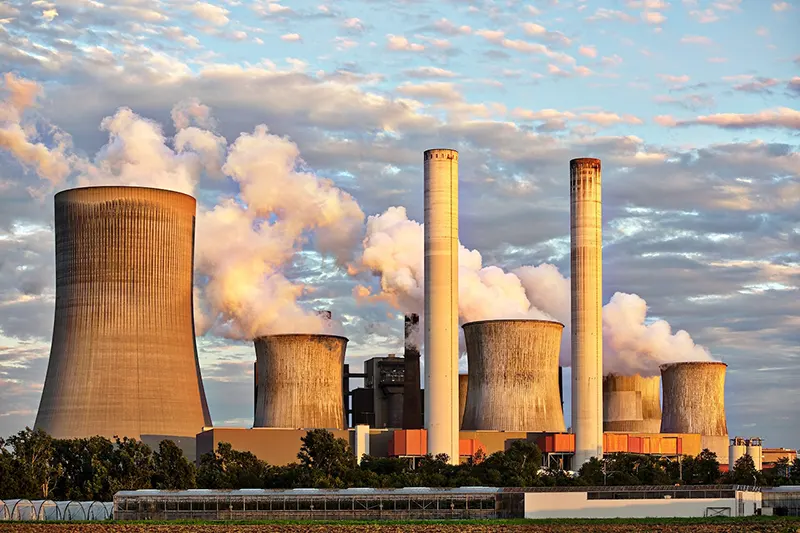
A radioactive particle or ion is a radioactive material released into the atmosphere through dust, fumes, mists, vapors, or gases. Because of their size, these particles can easily end up on our food or in the air.
Although there are radiation detectors that can find out how much radiation is present, it’s still something that makes us anxious. These tiny yet potent particles severely threaten human health if not managed appropriately.
Radioactive particles from the air may increase the chance of developing cancer and other illnesses. How is that possible?
Once inside the body, radioactive particles can harm cells and tissues. And even if individuals take steps to avoid inhaling contaminated air, it may be challenging to avoid radiation exposure since radioactive air may contaminate food and water sources.
So, everyone wishing to be ready for a radiological disaster and reduce their risk of damaging radiation must have a dependable means to filter radioactive particles in the air.
Is It Possible To Filter Radiation From the Air?
Is radiation in the air a common occurrence? There are several instances when a human error has endangered nuclear power facilities or caused them to melt down.
Even if these are uncommon, crises in one part of the world might impact locations on the other side of the planet through radiation.
Due to jet streams and severe weather changes, radioactive release and airborne contaminants may travel far from a nuclear power station.
Filtering the air and radiation have a long history together. The need for adequately filtering radioactive small particles drove the creation of High-Efficiency Particulate Air (HEPA) filters – known to be the most effective and well-known air filters on the market today.
During the war, scientists under the US government have successfully created the world’s first atomic bomb under the Manhattan Project.
Around this period, it became clear that scientists needed radioactive fallout protection to continue their job.
The U.S. Atomic Energy Commission discovered that radioactive fallout could be filtered using mechanical filtration as it is a natural particulate. It created HEPA filtration to shield scientists from exposure to radioactive particles.
HEPA filter technology was declassified after World War II and became useful in industrial and domestic devices to protect public health.
Pet dander, dust mites, pollen, and mold spores are examples of airborne particles that are 0.3 micrometers and more extensive and claimed to be removed by HEPA filters in the broad range of 99.97% to 99.99%.
How Can You Filter Radioactive Air?
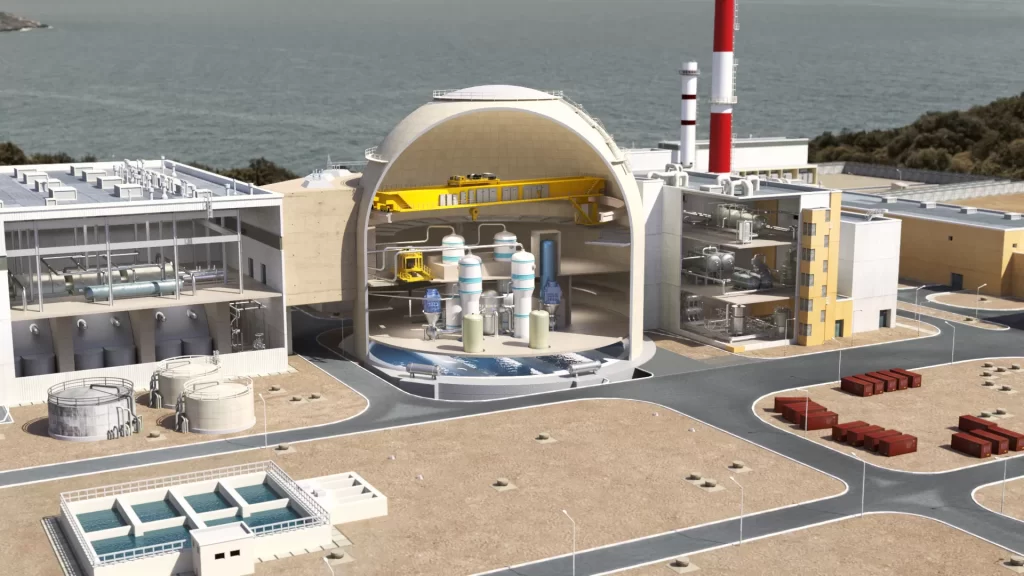
Radioactive particles have a significant impact despite their small size. Luckily, air filters utilize technology to remove certain kinds of airborne pollutants.
Having them at home might be advantageous if you live close proximity to a nuclear power plant or have acquaintances who often deal with radioactive materials.
High-Efficiency Particulate Air (HEPA) Filters
As mentioned earlier, the most effective kind of air purifier is the HEPA model. HEPA air purifiers use a unique filter media that gathers and eliminates airborne debris.
The capacity of these filters to remove minimum efficiency of 99.97% to 99.99% maximum of particles in size ranges as tiny as 0.3 microns down to 0.01 demonstrates their extraordinarily high effectiveness at removing particles.
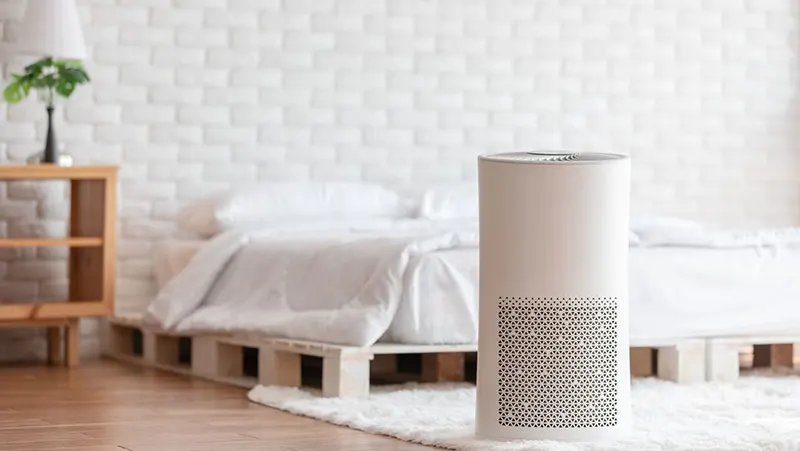
HEPA filtration has a fascinating history that spans more than 30 years. Perhaps more intriguing is the filter’s use in nuclear air purification and its subsequent impact on the nuclear program.
The HEPA air purifiers allowed labs and nuclear power plants to capture delicate particulate matter in the airstreams.
The vital relevance of the filter becomes apparent when some particulate matter in the air expelled to the environment may contain plutonium or other alpha radiation-bearing particles.
The HEPA filter has evolved from a primitive and inadequate original idea into the core of particle air cleaning for nuclear purposes and the most crucial environmental cleaning for other industrial activities.
HEPA filters were required in the nuclear sector to keep radioactive aerosols contained within nuclear plants. They were also used for evaluating new medications and vaccines because of their exceptional ability to remove particles.
They are often helpful in medical settings where the effectiveness of a single confinement might determine life or death.
High-efficiency particulate air filters would be an excellent addition to your disaster preparation pack unless you are confident your house is sealed and radiation-proof.
Activated Carbon Filters
An activated carbon filter uses activated carbon to remove gases and vapors from the filtered air.
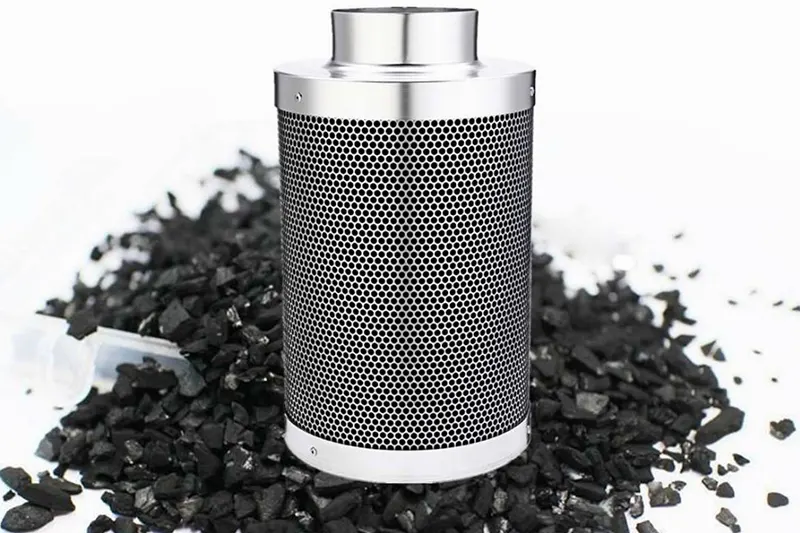
Since it has a vast surface area and is a highly porous type of carbon, activated carbon may adsorb (not absorb) gas and vapor molecules from the air flowing through the filter.
Nuclear processes or the decay of radioactive materials may produce radioactive fumes and vapors. A carbon filter encases these radioactive gases and vapors, limiting their release into the environment.
To offer thorough filtration in the air, carbon filters are helpful alone or with other filtration systems, such as HEPA filters.
Combining activated carbon with HEPA filters removes radioactive vapors, gases, and particles from the air and offers a high degree of defense against the damaging effects of radiation.
Gas Masks / Respirators
Proper gas masks and respirators may make all the difference in extreme air pollution, riot control, fires, natural catastrophes, pandemics, and nuclear power plant threats.
Nonetheless, most individuals have gravely flawed perceptions of the usage of these devices.
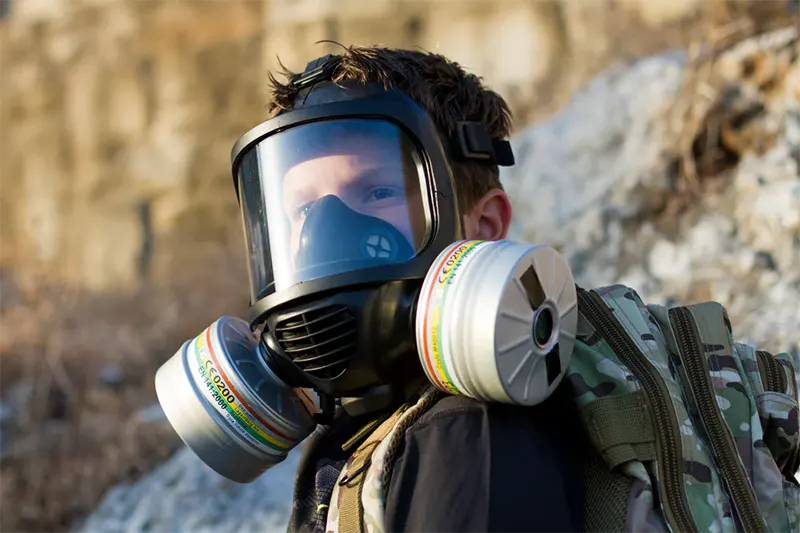
It would help to have a decent disposable N95/P100 mask and perhaps a reusable half-face respirator or full-face gas mask for best protection; bandanas and surgical masks are not enough.
The smaller disposable respirators offer an excellent cost/weight/volume-to-benefit ratio and must be in every emergency kit.
Yet, some preppers either completely ignore them, believe that N95 is the solution to all problems, or purchase a cheap gas mask with the hope that they may flee to Chernobyl.
Although surviving the first explosion is one thing, the following hours and days are just as dangerous, so gas masks and respirators might be helpful.
When a nuclear device explodes, it releases airborne contaminants through heat, explosion, and radiation.
The explosion also sends tons of dust and ash into the air, settling over the following weeks. It is crucial to understand that a gas mask’s main benefit is preventing the fallout particles from entering your body.
Respirators are essential to save your life in the aftermath, along with wise judgments, seeking refuge, blocking your skin, and cleaning particles from your body, clothes, and hair.
Choosing the Right Air Filtration System for Radioactive Air
The kind of radioactive particles, the size of the filtering area, and the individual filtration demands are essential when selecting a suitable air filtration technology.
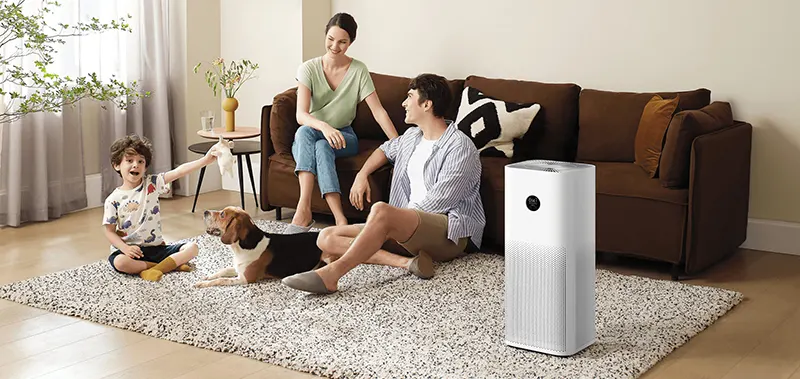
While selecting a radioactive air filtering system, consider the following factors:
Type of Filter
There are various filters; each tuned to remove a specific particle. HEPA filters, for example, are intended to remove bigger particles, such as dust and pollen.
On the other hand, an activated carbon filter intends to remove smaller molecules, such as gases and vapors.
The kind of filter used to clean the air will vary by the type of particles. Other variables, such as the quality of the filter material, may also influence air filtration efficiency.
Better-grade filters are often more effective when removing particles from the air.
Airflow
The pace at which air flows through the filter may also influence its efficacy. Particles may need more time to be cleared from the air if the airflow is too high.
Nevertheless, air filtering may be less effective if the airflow is very low.
Room Size
The room size or area that needs filtering also influences effective filtration. To efficiently remove impurities from the air, a bigger space would likely need a larger air filtration system.
Maintenance
Routine maintenance on filtration systems, such as changing filters or cleaning the material that makes up the filters, is critical for maintaining their performance.
Filters may lose their capacity to effectively remove particles from the air if they get blocked or dirty.
Type and Concentration of Contaminants
The kinds and levels of air contaminants may significantly reduce filtration efficiency. For instance, certain filters may be more effective at capturing tiny particles, while others may be better at catching bigger ones.
The pace at which air filters get clogged or saturated is another factor that may be affected by the concentration of air contaminants.
Guard Yourself Against Radioactive Dust
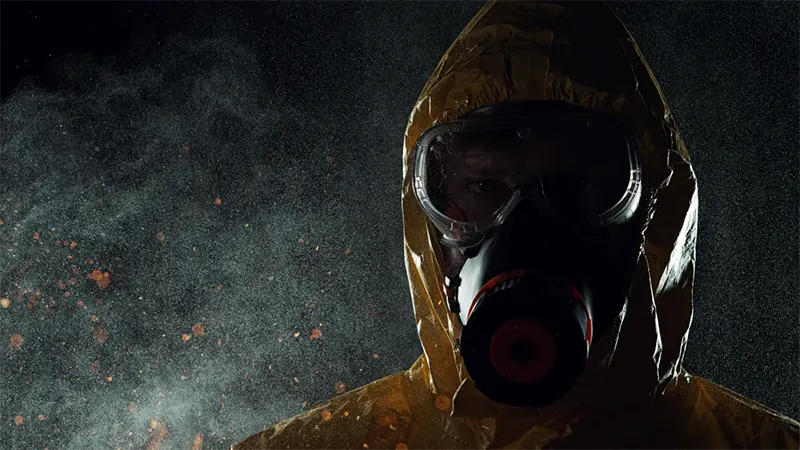
The following are some recommendations for keeping safe and protecting oneself against radioactive dust:
Avoid polluted areas: Avoid any site you know or suspect has radioactive dust. Use protective clothes for your skin and respiratory system, such as a coverall, gloves, and a mask, if you must enter a polluted area.
While leaving a potentially dangerous area, thoroughly wash your skin and clothing to remove any accumulated radioactive dust.
Use an efficient air filtration system: Choose a HEPA filter that is rated for radioactive particles. Upon installation, properly follow the manufacturer’s instructions to ensure that it performs as intended.
Poor installation might result in leaks and a reduction in efficacy. Check the filter on a regular basis because over time, HEPA filters may get clogged, reducing their efficacy.
Always remain informed: To be sure you are taking the proper measures, stay up to speed with the most recent information and recommendations from regional health authorities and governmental organizations.
Call medical attention if you suspect exposure to a significant amount of radioactive air: High-level radiation exposure may result in sickness, burns, and cancer.
Remove your clothes and dispose of them properly if they have been contaminated with radioactive dust.
How To Get Your House Ready for Airborne Contaminants
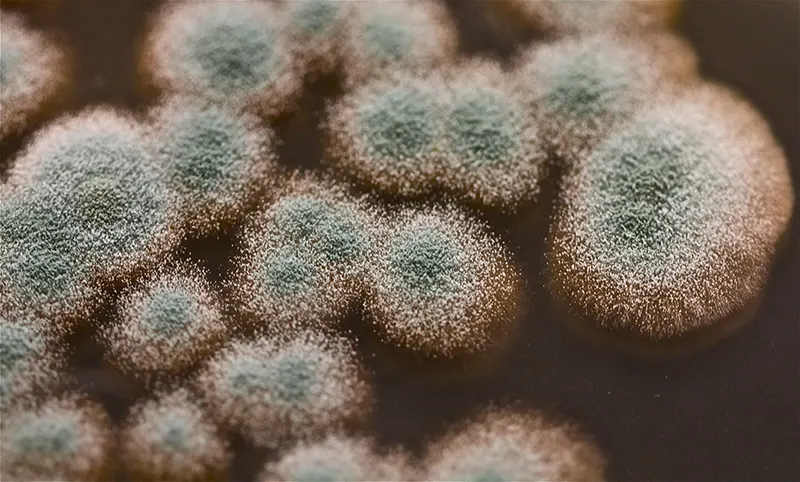
In the case of a chemical emergency, you may prevent many of the usual effects of radioactive particles in the air by being prepared and thinking ahead.
- Take your footwear off when entering your home.
- Wash your hands before eating.
- Put on a mask if you must go outdoors for any reason, even to walk the dog or fetch the mail.
- Whenever possible, stay indoors, mainly when it’s windy outdoors (which is when radioactive particles are most likely to be blown around).
- Lock all the doors and windows.
- Stop any unnecessary trips.
- Choose a filter that has been HEPA-certified by a trustworthy supplier.
- Seal all doors and windows to keep polluted air out of your house.
- Consider constructing a fallout shelter or safe room in your house.
Conclusion
There is now an enormous need for clean, healthy air free of toxins because of COVID-19, wildfires, volcanic eruptions, and possible nuclear power plants attack.
Preparing for any disaster is crucial for preppers, particularly radiological incidents that could unleash dangerous radioactive particles into the atmosphere. It is vital to protect ourselves and our families from radiation damage by learning to filter radioactive air and having the required supplies.
We can lessen the effects of probable radiological incidents to our health by taking proactive measures to prepare for them.

You mention sealing all doors and windows to keep out pollution, but remember you need a source of oxygen to do this for very long. By my calculations, a 10×10 room only has enough oxygen for 8.4 – 12.6 hrs for a resting human before the levels are not acceptable. I once did a search on how many growing plants you’d need in there with you. It was hard to find info. One source said 300 leaves would provide enough. But it didn’t say what size leaves, what variety, etc.